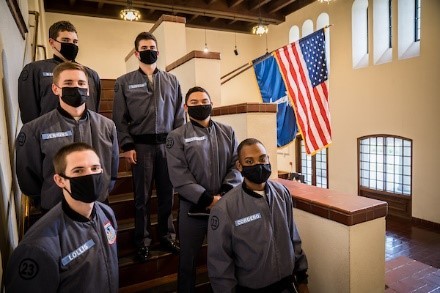
Photo above: Excellence in Civil Engineering Leadership Program cadets during their junior year, in Bond Hall, February 2021. Clockwise from left: Avery Lollis, Julian Jenkins, John Baker, Joshua Gibson, Eli Rodriquez and Kelsey Cordero.
By Demi Lewis, graduate assistant in The Citadel Office of Communications and Marketing
They are approaching their junior year — all six of the original Civil and Environmental Engineering cadets who attend The Citadel with the assistance of a grant-funded program designed to support their success, particularly where the rigors of the engineering-related math is concerned.
The six original cadets who matriculated in 2019 are: John Baker, Kelsey Cordero, Joshua Gibson, Julian Jenkins, Avery Lollis and Eli Rodriguez. And now there is a seventh cadet recently added to the program, Musukula McClain.
They represent the Excellence in Civil Engineering Leadership Program (ExCEL) at The Citadel. It is sponsored by a National Science Foundation’s Scholarship in Science, Technology, Engineering, and Mathematics Grant award earned by Mary. K. Watson, Ph.D., to the tune of $999,914. Watson has since expanded that grant to cover the seventh cadet, and several future Civil and Environmental Engineering cadets she plans to recruit. The ExCEL program is supported by numerous faculty and staff, including: Kevin Bower, Ph.D., Jeff Davis, Ph.D., Stephanie Fye, Simon Ghanat, Ph.D., Tara Hornor, Ph.D., Michelle Moss, and Timothy Wood, Ph.D.
“The purpose of this grant is to provide scholarship funds to attract and retain high-performing Civil Engineering students with leadership potential,” Watson, principal investigator for the grant, explains. “Students are selected through comprehensive screening of academic records, as well as an interview with a faculty panel to assess merit and character.”
Selected students receive up to $10,000 annually toward their tuition, and access to unique academic and professional development resources.
“By being part of the ExCEL Civil Engineering program, we receive extra tutoring from professors to help us with any course or paper,” says Cadet Gibson. “The resources we receive are excellent and the faculty and staff are always available to guide us.”
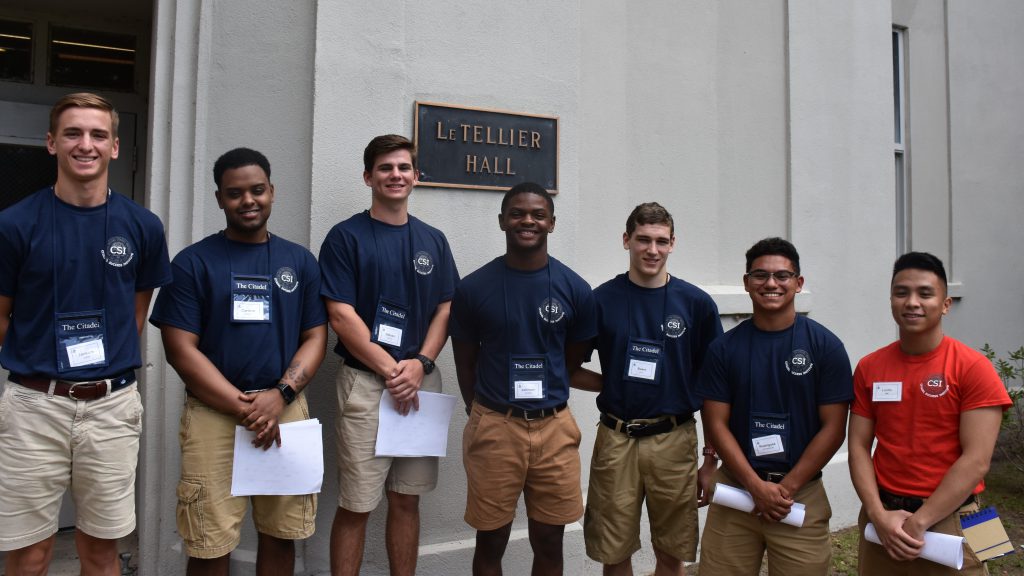
Prior to freshman year at The Citadel, the six cadets were required to complete an accelerated six-week Calculus I course over the summer. This consisted of face-to-face instruction with professors, supplemental instruction from cadet program leaders and an academic coach. All six cadets earned the required grade of “C” or higher and passed the Gateway exam required to progress further in the civil engineering curriculum. Their overall grade point average (GPA) for the course was 3.33, which was considerably higher than their peers who took Calculus I during the academic year.
After successfully completing Calculus I, students began a Calculus II sequence that spanned across their freshman fall and spring semesters. The Citadel planned the sequence format this way to allow students to maintain and further improve the math skills and study habits that they developed during the summer, while also providing them with flexibility to tackle the academic and military challenges of freshmen year. In addition to this sequence, they continued their Civil Engineering Seminar, which included links between Engineering, Calculus II and professional field trips. In Calculus II sequence all six students earned a “C” or higher. The combined GPA was 3.25, which was also considerably higher than their peers who took Calculus II in a single semester.
All six cadets earned a cumulative GPA above 3.0 their freshman year at The Citadel.
“I feel I am doing well in the Civil and Environmental Engineering program,” says Cadet Avery Lollis. “I can say that the faculty and staff strive to help the ExCEL cadets succeed. It’s not easy by any means, but if you are willing to put in the effort, they will match that same amount of energy you put it. “
In their sophomore year, they are participating in an experiential Chemistry sequence. They serve as student instructional leaders for Calculus I cadets, and they are actively connecting with professional mentors provided through the program.
“I think that attitude really makes a big difference in my own studies because if I feel like I am starting to struggle I know they will be there to guide me in the right direction,” Lollis concludes.
To find out more about The Citadel Department of Civil and Environmental Engineering’s ExCEL program, email Professor Watson at mwatson9@citadel.edu.
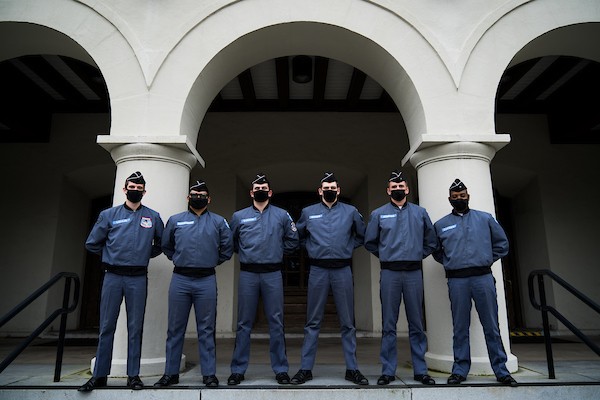

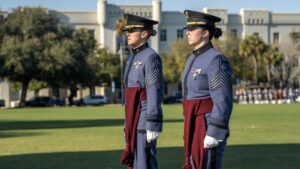 Prestigious Cincinnati and MacArthur awards presented to Citadel cadets
Prestigious Cincinnati and MacArthur awards presented to Citadel cadets Looking ahead to the major events of 2026-27
Looking ahead to the major events of 2026-27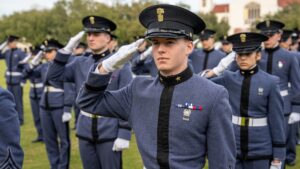 Photos from campus: January in review
Photos from campus: January in review


